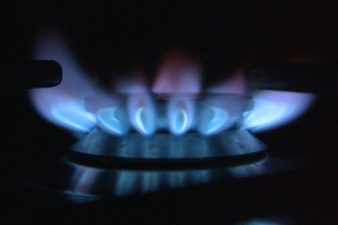 After a burning hot run, Israel’s solar energy business doesn’t look so hot right now. Hundreds of solar-related jobs at stake.
After a burning hot run, Israel’s solar energy business doesn’t look so hot right now. Hundreds of solar-related jobs at stake.
Not long after local and foreign companies made investments in Israeli solar energy installations to benefit from the very attractive feed-in tariff, a sudden announcement by the Israel Electric Company (IEC) states that its subsidy funds have reached the quota. A panic in the country’s burgeoning solar energy development industry has ensued.
The announcement, published in several local newspapers, including Haaretz, reported the sudden “halt” announcement by the IEC.
The company said that funds allotted by the government’s National Infrastructure Ministry, together with the Public Utilities Authority (electricity sector) have dried up. From all the sun shining on the solar industry?
These funds were originally authorized a few years back so that public and private entities who build solar energy plants of there premises, can sell excess electricity to the IEC at higher, subsidized rates. This arrangement was made to offset the higher costs of producing electricity from solar energy due to the costs of investing in the necessary equipment, which results in the electricity generated costing much more than if produced by current means, such as by fuel oil and coal.
The current costs of producing electricity from solar energy is in fact so high, that the subsidies originally authorized to the IEC by the government amounted to being four times the amount that electricity costs by coal and oil. In the original (and so far only) agreement, the IEC would purchase up to 50 MW of solar produced electricity from these solar plants as part of a plan to introduce the use of solar energy panels to both business and private individuals.
By ending these subsidies, about 100 local solar energy companies employing as many as 1,000 people may be in danger of closing, according to sources.
What’s at stake? Here’s one project: Israel provided $25 million to Gazan Palestinians in a United Nations sanctioned development project following the removal of the Jewish settlements in August, 2005.
The money was given to Gaza in the form of a grant, but most of it was “absorbed” into the pockets of the Palestinian Authority, which later became the Hamas controlled political entity it is today. Most likely, a good deal of this money was later used to purchase weapons and explosives for use in home-made Kassam rockets which were launched against Israeli towns and settlements
In an article just posted on our news site, the same UN body (the UNDP) was noted to be very much involved in subsidizing environmental projects in neighboring Lebanon including at least three dealing with solar energy for the creation of electricity. Whereas Lebanon has received this assistance from the world organization, Israel has had to pay out funds for these projects, including the previously mentioned one in Gaza.
Due to the repercussions as a result of the recently published Goldstone Report, there is little chance that Israeli solar energy companies can receive any financial assistance from the UNDP or any other UN agency.
According to the Haaretz article, the IEC’s role in its assistance to the solar energy companies was to connect between the solar systems installed on rooftops and the national grid. Following the completion of the quota (of which it had been reported last month that only 55% of the total allocation has been used), the IEC has frozen all requests for such connections. And as such, the installers are in a bad situation since the IEC refuses, at this point at least, to hook up to the grid.
The solar energy companies that might be able to weather this storm are the ones like BrightSource who are innovators with solar energy projects abroad. But for those whose operations have been confined mostly to Israel, and who have invested in Israel, they are now wanting to find out why monitor devices were not in place to keep track of the amount of electricity being sent to the IEC. Until a financial solution is found, it’s going to be very cold winter for a previously “hot” segment of Israel’s clean technology sector.
We’re sure this is going to the first in a number of many articles on this story.
::Haaretz




9 thoughts on “The Penny Drops: Israel Solar Energy "Gold Rush" Threatened By Government Hold”
Comments are closed.